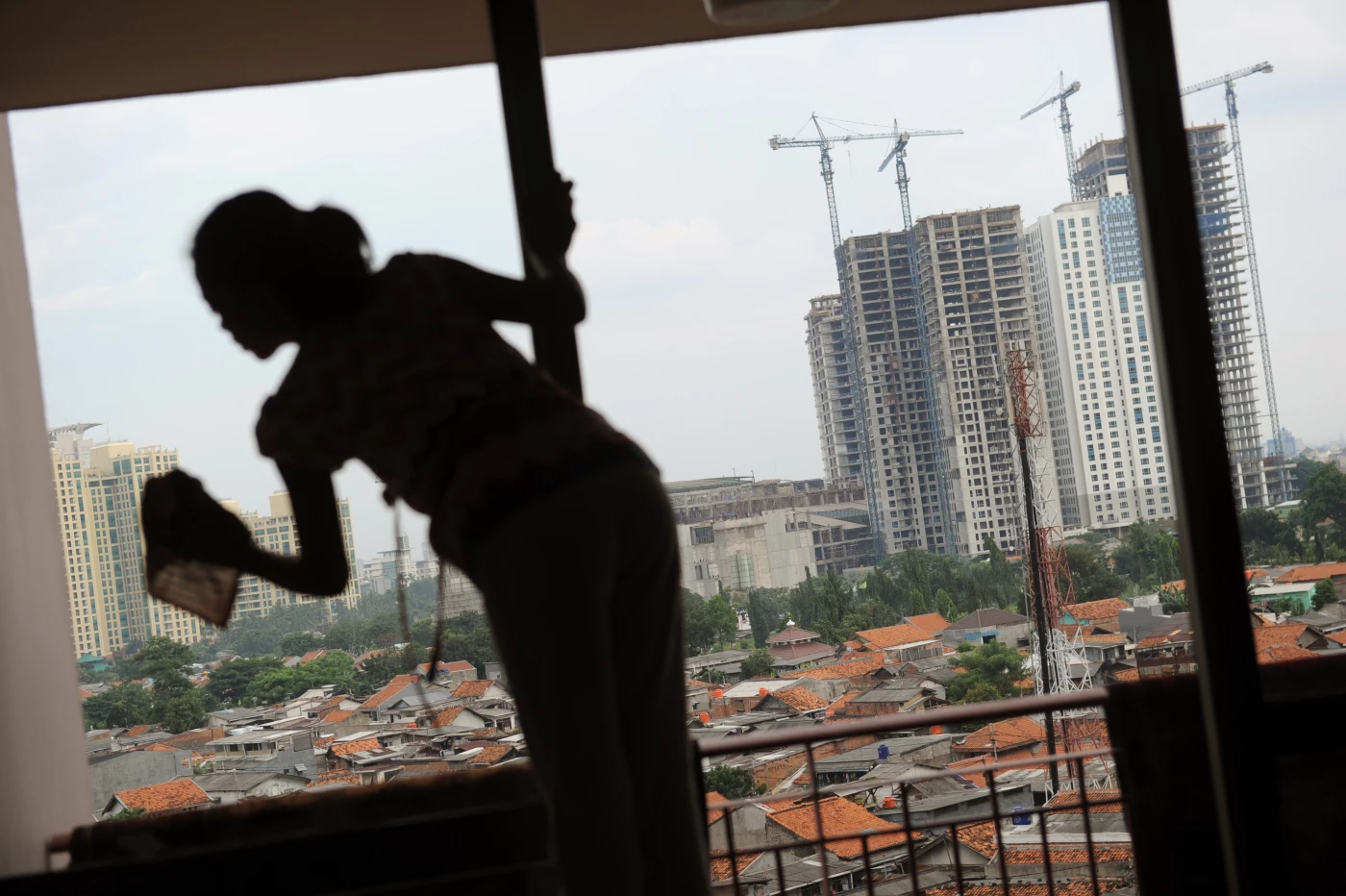BAGHDAD, Iraq - Iraq has recently witnessed a noticeable growth in the number of labor recruitment firms, leading to the emergence of a new phenomenon: the increasing number of domestic workers in Iraqi homes. The trend was previously more common in Gulf countries but has now begun to spread significantly in Iraqi society.
With the rise in the number of foreign domestic workers in Iraqi households, they face major challenges behind closed doors. Despite the difficult conditions in their home countries often forcing them to accept unfavorable working conditions in order to provide for themselves and their families, they are subjected to various forms of mistreatment.
Simba is one of many who has been subjected to sexual harassment and other forms of mistreatment in the houses that employed them. Her eyes brimming with tears, she told The New Region about her escape from the house where she worked after being harassed by the homeowner.
“He would undress in front of me and forcibly make me do what he wanted,” lamented Simba.
Sumaya, an Asian domestic worker, also shared her story with The New Region about the sexual harassment she endured at her workplace. She claims to have been repeatedly harassed by the homeowner’s brother.
“Everyone treated it as a joke when he touched my body in front of them,” until “it escalated, and he attacked me in my room,” she said.
Speaking about the challenges facing domestic workers in Iraq, Zainab, a recruitment office manager in Baghdad, stated that “the wages these workers receive are extremely low, and families do not consider the emotional toll on workers who have left their families and children behind.”
“Harassment is a major problem for domestic workers, as they frequently experience it,” Zainab noted. “The real disaster is when the family learns about the harassment but chooses to defend their son or husband and blame the worker instead.”
Legal expert and lawyer Mohammed Jumaa highlighted the widespread issue of harassment and rape among domestic workers in Iraq. He explained “One of the biggest obstacles these workers face is the expiration of their residency permits, which are often not renewed.”
“Workers who experience such assaults fear reporting them, as they risk losing their passports and facing the danger of expired residency permits,” said Jumaa, adding that “many who want to file complaints are afraid because of their expired permits, so they prefer to remain silent and work elsewhere.”
He also pointed out that “many recruitment companies exploit foreign workers and take advantage of their illegal status.”
Previously, Iraq’s Integrity Commission recommended amending the laws regarding the recruitment of Arab and foreign workers into Iraq. They proposed enacting strict legal provisions and strengthening punitive measures to eliminate illegal labor entry and infiltration into Iraq.
The recommendation followed an assessment of the problems and loopholes related to foreign labor, especially amid concerns about the illegal entry of these workers.
The Iraqi parliament’s labor and social affairs committee previously revealed that there are approximately one million foreign workers in Iraq. Meanwhile, the Ministry of Interior occasionally announces the deportation of foreign workers who violate residency conditions.
Najm al-Aqabi, spokesperson for the Ministry of Labor and Social Affairs, asserted that “inspection teams visit sites where foreign workers are employed.”
“Recruitment companies provide the ministry with the locations of these workers to enable inspection teams to take necessary actions,” he told The New Region.
Human rights watchdogs have repeatedly slammed the Iraqi government when it comes to the status of foreign workers in the country, decrying the absence of legal rights, lack of health insurance, and long working hours. The workers are also more vulnerable to exploitation and abuse by employers due to the lack of legal and social protection.
In its 2024 Trafficking in Persons Report on Iraq, the US State Department acknowledged that Baghdad had made “significant efforts” to combat trafficking, including investigating and prosecuting more trafficking crimes, but stressed that the government did not “fully meet the minimum standards for the elimination of trafficking.”
“Foreign migrant workers, including foreign labor trafficking victims, faced regular discrimination in the criminal justice process, re-victimization, and retaliation from traffickers,” read the report.
“Traffickers fraudulently recruit some foreign migrants for work in other countries in the region, but subsequently force or coerce them into working in federal Iraq and the IKR [Iraqi Kurdistan Region].”
The full names of some of the interviewees have been intentionally kept by The New Region's editorial team due to the sensitivity of the topic



 Facebook
Facebook
 LinkedIn
LinkedIn
 Telegram
Telegram
 X
X


